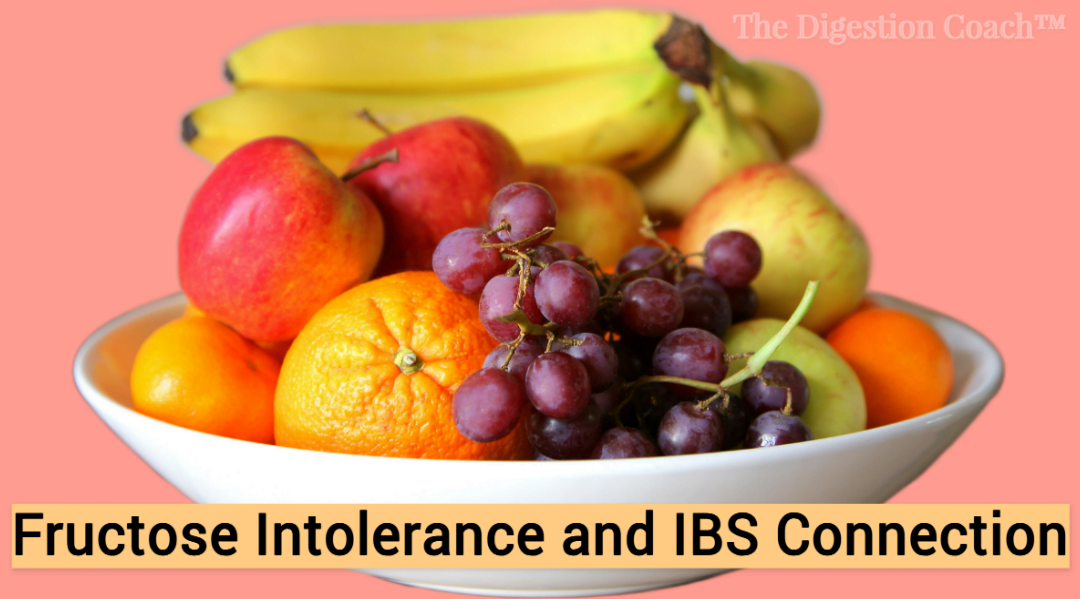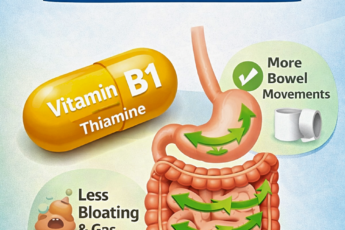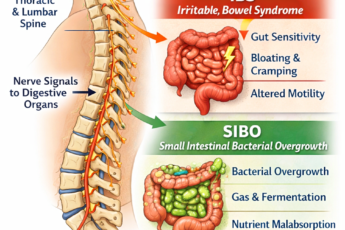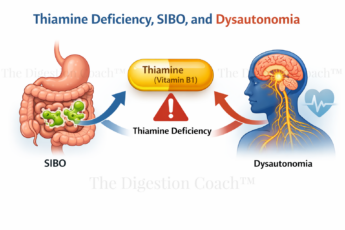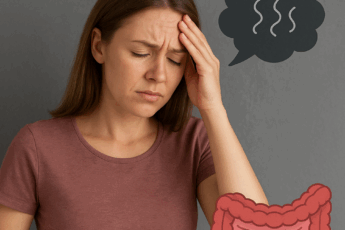Fructose Intolerance and The Underdiagnosed Connection Mistaken for IBS
Table of Contents
- What is Fructose Intolerance?
- Symptoms of Fructose Intolerance
- Fructose Intolerance and Unexpected Weight Gain: The Link
- Fructose Intolerance Underdiagnosis and Misdiagnosis as IBS
- Differentiating Fructose Intolerance from IBS
- Diagnostic Approaches for Fructose Intolerance
- Managing Fructose Intolerance and Weight Gain
- What Foods to Avoid on a Fructose-Restricted Diet
- Foods Low in Fructose or Foods That Contain a Higher Glucose-to-Fructose Ratio
- Conclusion
- References
- Frequently Asked Questions (FAQ)
What is Fructose Intolerance?
Fructose intolerance, sometimes called fructose malabsorption, happens when your small intestine can’t properly take in fructose. This sugar then builds up in your gut, pulling in water and causing stomach issues. It’s usually because your body lacks a protein called GLUT5, which helps absorb fructose, or an enzyme called aldolase B. Eating foods high in fructose—like fruits, honey, or some sweeteners—can lead to bloating, stomach pain, diarrhea, gas, and sometimes weight gain. A study found that about 30% of people with stomach problems might have fructose intolerance (Choi et al., 2003). Figuring out if you have it is important to avoid confusion with conditions like IBS and to find the right way to feel better. By avoiding high-fructose foods, you can control symptoms and live more comfortably.
Symptoms of Fructose Intolerance
Fructose intolerance causes stomach problems after eating foods high in fructose. Common symptoms include bloating, stomach pain, diarrhea, and gas. A study showed that 85% of people with fructose intolerance feel bloated and have stomach pain, 65% get diarrhea, and 70% have gas (Choi et al., 2003). These problems often start after eating foods with a lot of fructose or foods where fructose outweighs another sugar called glucose. Recent research also suggests that fructose intolerance, or eating too much fructose, might lead to weight gain or trouble with how your body handles sugar, called insulin resistance (Scarpace et al., 2008). Knowing these symptoms can help you spot fructose intolerance and make changes to feel better.
Fructose Intolerance and Unexpected Weight Gain: The Link
New studies show that fructose intolerance might cause weight gain. When your body can’t absorb fructose, it moves to your large intestine, where gut bacteria break it down. This creates gases and other substances that can cause swelling in your gut and change the bacteria there. These changes can mess with how your body processes food and lead to weight gain. A study suggested that eating a lot of fructose over time can harm gut bacteria and cause low-level swelling, which might make you gain weight (Chen et al., 2021).
Fructose can also affect hormones that tell your brain when you’re full. In studies with rats, high fructose levels made it harder for a hormone called leptin to work properly. Leptin helps you feel satisfied after eating. When it doesn’t work, you might eat more and gain weight. High fructose also raised fat levels in the rats’ blood, which might block leptin from reaching the brain (Scarpace et al., 2008; Havel et al., 2002; Morley et al., 2004). These findings show why fructose intolerance could lead to weight gain and why more research is needed.
Fructose Intolerance Underdiagnosis and Misdiagnosis as IBS
Fructose intolerance is often missed or mistaken for IBS. Studies show it’s common among people with stomach issues, but doctors don’t always check for it. One study found that 74% of 500 people thought to have IBS actually had fructose intolerance (Shepherd et al., 2008). Another study said about one-third of people with possible IBS might have fructose intolerance instead (Choi et al., 2008). When doctors think it’s IBS but it’s really fructose intolerance, treatments may not work, and people keep feeling bad. A test called a hydrogen breath test can help figure out if it’s fructose intolerance. Doctors need to know about this mix-up to help patients feel better faster (DiNicolantonio et al., 2015).
Differentiating Fructose Intolerance from IBS
Telling fructose intolerance apart from IBS is key to getting the right treatment. Both can cause similar stomach problems, but there are clues to spot the difference. For example, fructose intolerance symptoms often show up soon after eating high-fructose foods, and cutting out fructose usually helps. With IBS, symptoms might not be tied to specific foods in the same way. Checking how your body reacts to a low-fructose diet can help figure out which condition you have.
Diagnostic Approaches for Fructose Intolerance
Sometimes, IBS-like symptoms come from bacteria in your small intestine fermenting fructose, not just fructose intolerance. This condition is called Small Intestinal Bacterial Overgrowth (SIBO), a type of IBS. To diagnose fructose intolerance, doctors look at your health history, do a physical exam, and run tests. A common test is a breath test that checks for gases like hydrogen, methane, or hydrogen sulfide after you drink a fructose solution. This helps tell if it’s fructose intolerance or SIBO.
It’s tricky because some people have both fructose intolerance and SIBO, or just one. IBS symptoms might not always come from either condition alone, so treatments that work for SIBO might not help fructose intolerance, and vice versa. Doctors need to carefully study your symptoms to pick the best plan.
Managing Fructose Intolerance and Weight Gain
To manage fructose intolerance and any weight gain, you’ll likely need to change what you eat. A low-fructose diet means avoiding foods and drinks high in fructose, like certain fruits, honey, and some sweeteners. By eating a balanced diet and avoiding trigger foods, you can reduce symptoms and feel more normal.
There’s also a supplement called xylose isomerase that might help. It turns fructose into glucose, which your body can handle better. A study showed that taking this supplement lowered gas in the breath and eased nausea and stomach pain in people with fructose intolerance (Singh et al., 2019). Talk to your doctor about what’s right for you.
What Foods to Avoid on a Fructose-Restricted Diet
On a low-fructose diet, avoid or limit these foods:
- High-fructose fruits: Apples, pears, mangoes, pineapple, watermelon, grapes, cherries, ripe bananas, dried fruits (like raisins or dates).
- Fruit juices and sugary drinks: Skip fruit juices, sodas, and drinks with added sugars or high-fructose corn syrup.
- Processed foods: Watch out for sweetened cereals, cookies, cakes, candy, chocolates, flavored yogurts, and fruit snacks. Check labels for hidden sugars.
- Honey and agave nectar: These sweeteners are high in fructose.
- High-fructose corn syrup (HFCS): Found in many processed foods and drinks—read labels to avoid it.
- Certain vegetables: Limit onions, garlic, artichokes, asparagus, and leeks, which can have more fructose.
- High-fructose sweeteners: Stay away from honey, molasses, fruit sugar (fructose), and corn syrup solids.
Foods Low in Fructose or Foods That Contain a Higher Glucose-to-Fructose Ratio
If you have fructose intolerance, eating foods low in fructose or with more glucose than fructose can help avoid symptoms. Good choices include fruits like strawberries, raspberries, blueberries, oranges, grapefruit, avocados, lemons, peaches, apricots, and kiwi. Vegetables like spinach, lettuce, and bell peppers are also low in fructose. Sweeteners like table sugar (sucrose) or glucose syrup are often easier to digest than high-fructose ones. These foods give you nutrients without triggering stomach problems.
Note: Even low-fructose fruits might bother some people. Pay attention to how your body reacts. If these foods cause issues, you might need to avoid most fruits.
Conclusion
Fructose intolerance makes it hard for your body to handle fructose, leading to stomach problems and sometimes weight gain. Unfortunately, it’s often confused with IBS, so many people don’t get the right diagnosis. Doctors should consider fructose intolerance when someone has bloating, stomach pain, diarrhea, gas, or unexplained weight gain. Tests can help tell it apart from IBS or SIBO. By eating a low-fructose diet and working with a doctor, you can manage symptoms and get back to feeling better.
References
- Gibson PR, Shepherd SJ. Evidence-based dietary management of functional gastrointestinal symptoms: The FODMAP approach. J Gastroenterol Hepatol. 2010 Feb;25(2):252-8.
- Beyer PL, Caviar EM, McCallum RW. Fructose intake at current levels in the United States may cause gastrointestinal distress in normal adults. J Am Diet Assoc. 2005 Jul;105(7):1559-66.
- Choi YK, Johlin FC Jr., Summers RW, Jackson M, Rao SS. Fructose intolerance: an under-recognized problem. Am J Gastroenterol. 2003 Oct;98(10):1348-53.
- Choi YK, Kraft N, Zimmerman B, Jackson M, Rao SS. Fructose intolerance in IBS and utility of fructose-restricted diet. J Clin Gastroenterol. 2008 Oct;42(9):233-8.
- Ledochowski M, Widner B, Bair H, Probst T, Fuchs D. Fructose- and sorbitol-reduced diet improves mood and gastrointestinal disturbances in fructose malabsorbers.
Frequently Asked Questions (FAQ)
Q: What is fructose intolerance?
A: Fructose intolerance, also known as fructose malabsorption, is a condition where the body has difficulty digesting fructose, leading to digestive symptoms and potential weight gain.
Q: What are the common symptoms of fructose intolerance?
A: Common symptoms include bloating, abdominal pain, diarrhea, and flatulence after consuming foods high in fructose.
Q: How does fructose intolerance contribute to weight gain?
A: In fructose intolerance, undigested fructose reaches the large intestine, where it is fermented, leading to inflammation and disruptions in gut microbiota, which may contribute to weight gain.
Q: Is fructose intolerance often misdiagnosed as IBS?
A: Yes, fructose intolerance and its associated weight gain are often misdiagnosed as Irritable Bowel Syndrome (IBS) due to the similar symptoms they share.
Q: How can fructose intolerance be differentiated from IBS?
A: Distinguishing features include the timing of symptoms after consuming fructose, response to a low-fructose diet, and the presence of other associated symptoms like weight gain.
Q: What diagnostic approaches are used for fructose intolerance?
A: Diagnostic approaches may include a medical history evaluation, physical examination, and specific tests such as the hydrogen breath test and fructose challenge test.
Q: Can fructose intolerance be managed through diet?
A: Yes, dietary modifications such as following a low-fructose or fructose-restricted diet, with guidance from a registered dietitian, can help manage fructose intolerance and potential weight gain.
Q: Are there specific foods to avoid for fructose intolerance?
A: Yes, individuals with fructose intolerance should avoid high-fructose foods such as certain fruits, honey, and certain sweeteners. Reading food labels and choosing alternatives is important.
Q: Are there any foods that can be tolerated better with fructose intolerance?
A: Yes, foods with a lower fructose content or a higher glucose-to-fructose ratio, such as berries, citrus fruits, and certain vegetables, may be better tolerated.
Q: Is fructose intolerance a common condition?
A: Fructose intolerance is relatively common, but it is often underdiagnosed. Increased awareness can help identify individuals who may be experiencing symptoms.
